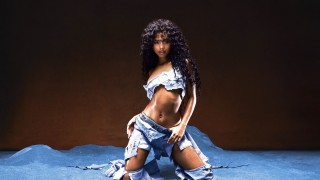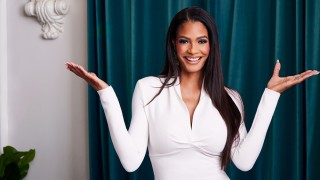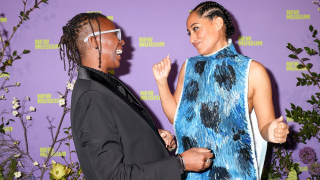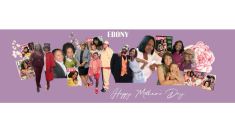I am firmly aware of some folks’ positions when it comes to gender roles in relationships — especially African-Americans I know. In a so-called traditional heterosexual union, the roles are clear and well-known.
The man is deemed the protector, provider and head of the household, while the woman’s role is defined as the nurturer, the housekeeper and the more submissive being of the two, blah blah blah. This is evident in other ethnic households as well, but my experience has been that they are often more flexible in their approach these days.
But what happens when who you are does not “fit” into the role that you’ve been assigned by society? How do you function in a relationship?
While I am very familiar with the inner workings of the traditional Black family, I can honestly say that was not how I grew up. I was privileged enough to be raised in a two-parent household. My folks weren’t perfect and God knows they had their share of dysfunctions, but they truly did love each other. And I can confidently say that love still stands the test of time despite my dad’s recent transition to the afterlife.
Their relationship didn’t follow the traditional roles, though. My mom was the breadwinner and overall dominant personality. While she made more money, took care of all of the finances and clearly had more of a say in how the house was governed, she didn’t emasculate my father for cooking all of the meals, washing all of the clothes and taking care of me. She did not accuse him of being “less than a man” because he was a stay-at-home dad for most of my childhood. She loved and supported him despite what society deemed “appropriate” behavior for a man and woman, and I truly believe that is why they lasted for 41 years. He was never a “punk,” and thrived in his role as a father and nurturer.
My parents didn’t allow gender roles to define their union; they let love, respect and playing to each other’s strengths to govern their relationship.
Just like in my childhood household, the roles of men and women in today’s society are ever-evolving. Internal and external factors play a huge role in determining who does what in order to function properly as a unit. But for some reason, many people place more emphasis on doing what they’ve been instructed to do instead of what really works for their relationship.
A Michigan Family Review study that analyzed the role of African-American fathers in the family nucleus, outlines how socioeconomic and environmental factors have affected traditional gender roles.
“Over the last several decades, changes have occurred in almost all American families because of economic factors. It is increasingly difficult for one parent to earn enough a living wage to support an entire family. Jobs have gone off shore, companies have been down-sized, and entire industries have been mechanized. Those at the lower end of the occupational hierarchy—particularly poor persons of color—have faced the most negative effect. Most mothers of young children are now employed at some level outside the home, marriages and relationships have been truncated and changed, children are being cared for through a variety of arrangements, and parents of both genders have had to become involved in family tasks. These are patterns that have existed within the African-American community for decades.”
Everyone has a role, but how flexible are we as a community in filling that role and playing to our partner’s strengths? The above explanation is as clear as day. The traditional model for families does not fit into today’s socio-economic climate and way of life. So why do some people refuse to adapt to today’s conditions?
For the sake of descriptors, I’m what you may refer to as as an Alpha female. I am strong, gentle, and do not fit into the cookie-cutter definition of what society deems as a woman’s place. I will cook for you, but I am not June Cleaver. I will submit in the bedroom, but you better believe I’m going to get mine too. And because of my strong personality, I have a plethora of examples, regretfully, where I decided to assume the submissive role in my relationship — arguably to excess — for fear of “disrespecting” my mate.
And I was miserable.
I allowed societal pressures of how a woman and man should act to dictate my interaction with my mate. I became concerned with being too outspoken, too forward, or knowing when to “let a man be a man.” Love shouldn’t work that way.
While having a conversation with a male associate of mine, he explicitly stated that his woman was his “property.” She could not make more money than him. She was to allow him to “lead and govern” — his words — the household at all cost and she was to allow him to be a “man,” whatever the hell that means. When I asked him why, his answer was simple: “That’s how it is. That is how it is supposed to be and that’s how it always has been.”
Not once did he mention that he was satisfied with the arrangement. It seems more like a pre-programmed way of life, with no room to create your own destiny.
Instead of allowing society to dictate who does what in a relationship based on gender alone, why not play to the strengths of each person in your union? When you attempt to force a square peg into a round hole you end up disappointed. Some women are naturally more aggressive. That doesn’t make you less of a man. Some men just happen to be much better cooks. A woman’s “wife” card shouldn’t be taken away because she can’t make a mean lasagna.
It’s time that we stop allowing systems to dictate how we interact with each other. It’s time for us to stand up to that one friend who gets off on “putting his woman in her place.” And it’s BEEN time to kill the barefoot and pregnant syndrome when we clearly live in a world that requires something different.
For some, the traditional way of living is the way to go. Not knocking it. But if you happen to find yourself being the better cook, better cleaner and overall more nurturing person in the union despite having that XY chromosome combo, know that there’s nothing wrong with it and there’s nothing wrong with you.
Shantell E. Jamison is a digital editor for EBONY.com and JETMAG.com. Her book, “Drive Yourself in the Right Direction” is available on Amazon. Follow her on Facebook, Twitter @Shantell_em and Instagram @Shantell_em.












